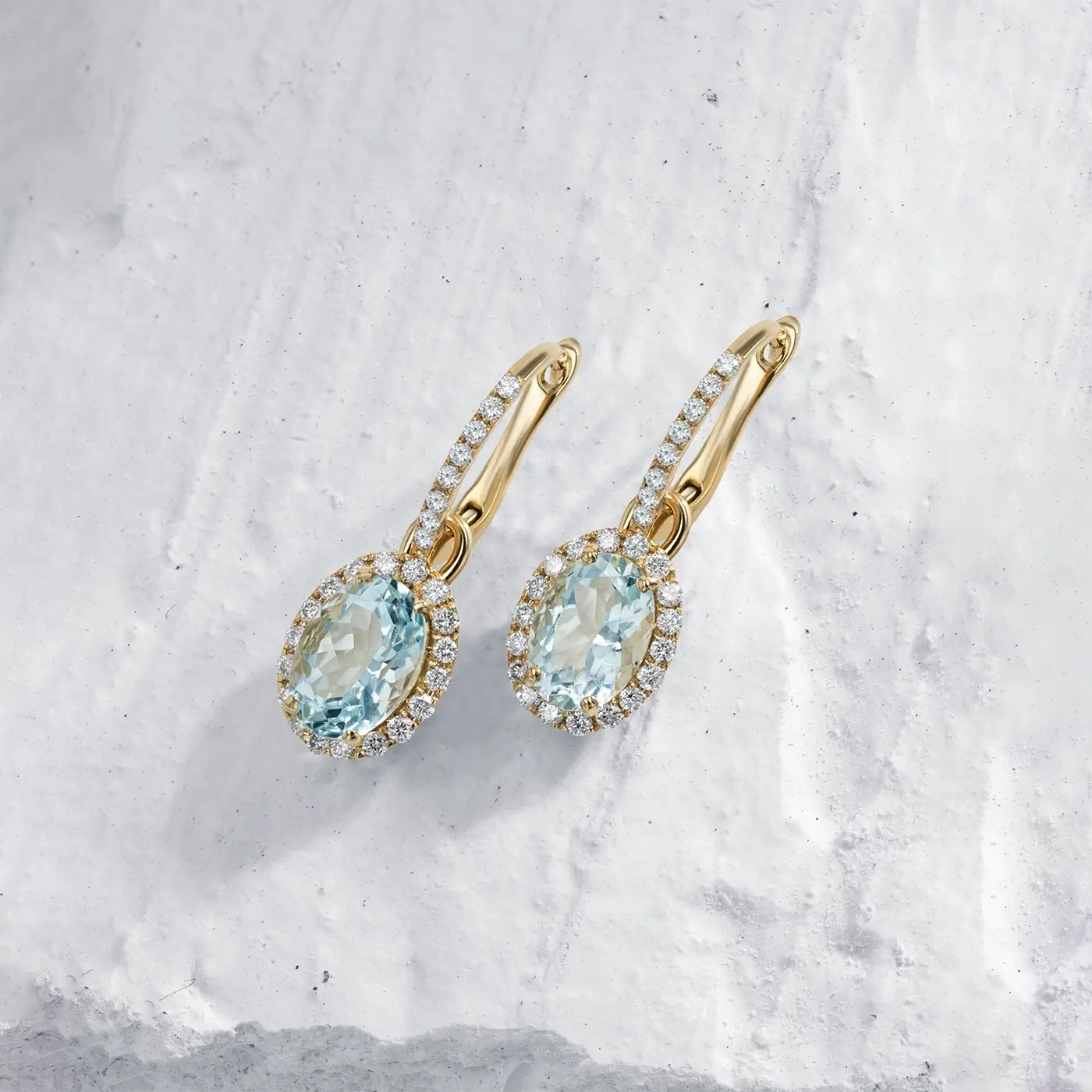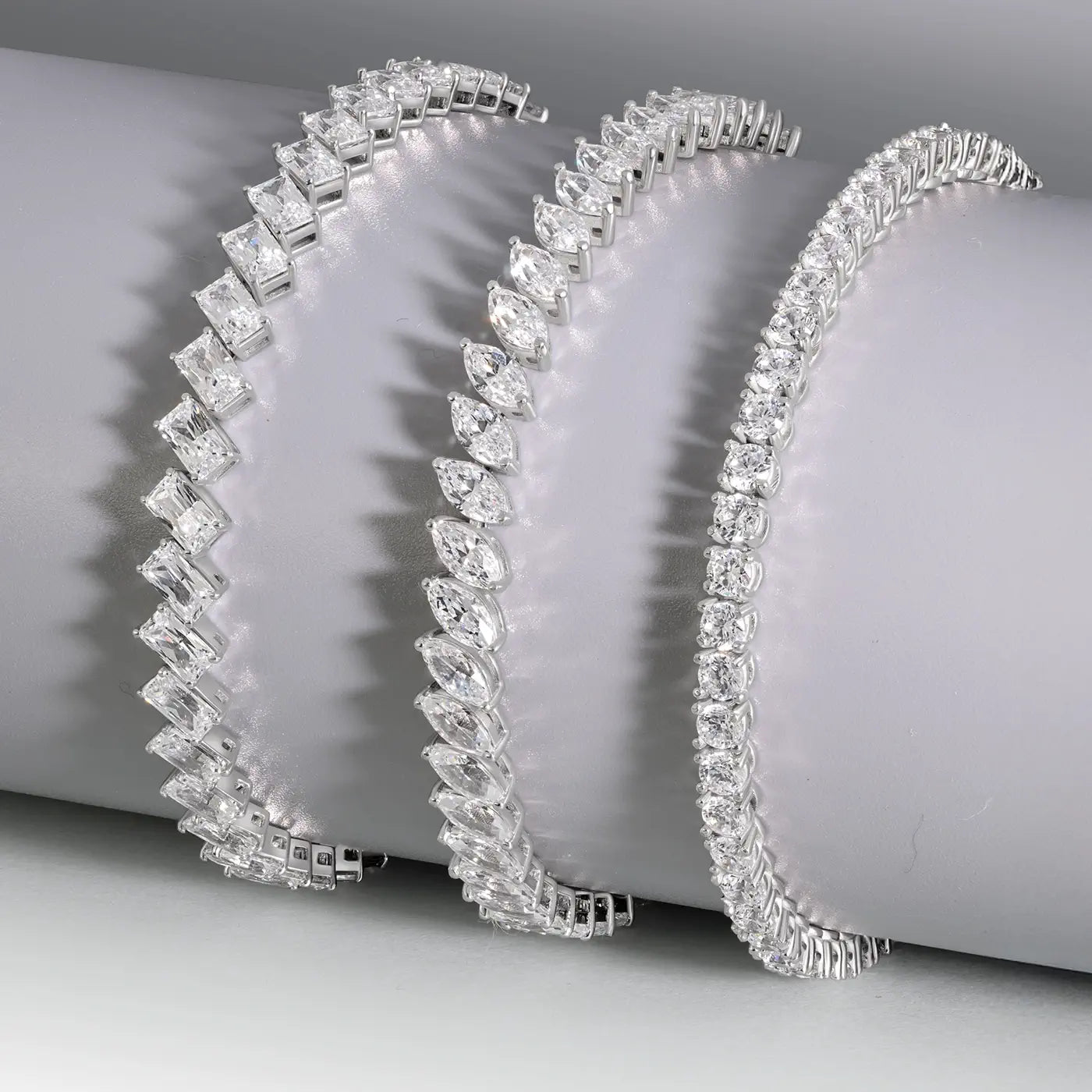ENCYCLOPEDIA
Garnet Full Guide

Garnet, from the Latin granatus meaning “seed-like,” is named for its resemblance to pomegranate seeds. Known for its deep red hue — though it occurs in a range of colors — garnet symbolizes vitality, protection, and enduring love. This ancient gemstone has been valued across cultures for centuries and is often associated with energy and regeneration. Garnet is the birthstone for January and is traditionally gifted for the 2nd wedding anniversary.
Characteristics of the Garnet
Etymology: The name is derived from the Greek granatum, meaning "grain", in reference to the red color of the pomegranate.
Family: Garnet
Chemical Composition: Nesosilicate with trace elements of Magnesium, Iron, Aluminium and Manganese depending on the type.
Hardness: 6.5 - 7.5 on the Mohs scale
Density: 3.47 – 4.15
Optical Properties: Single refractive
Refractive Index: 1.714 to 1.888
Birefringence: None
Crystal System: Rhombic Doecahedron

The origin of Garnets
Garnets can be traced back to Ancient Egypt.
The color of the garnet is dependent on the region in its found, due to its chemical complexity. Here is a list of countries where garnets can be found :
- The more common red garnets, almandines, pyropes and rhodolites are commonly found in Sri Lanka, India, Myanmar and the United States.
- Orange and brown spessartites and hessonite can be found in Namibia, Sri Lanka and Madagascar
- The rarest green garnets, known as demantoid (lime-green) and tsavorites (closer to grass) are found in Russia and East Africa.
Carat
The carat is the standard unit of measurement for the weight of gemstones. One carat is equal 200 milligrams.
It should not be mistaken with karat, which is the standard indicator for the purity of gold.
Garnets are among the denser gemstones, they will be smaller than other gemstones of equivalent weight.
The color of the Garnet
As mentioned earlier, the color of garnets is region-specific. Each type of garnet has its own complex chemical composition.
The green color of the tsavorites and demantoids will come from its chromium cation content, the ferric iron gives the yellow tint to the demantoids.
The purple-red and orange colors of the pyropes, spessartites and rhodolites can be attributed to chromium anion in its composition.
Discover our Guide on the Colors of Gemstones.


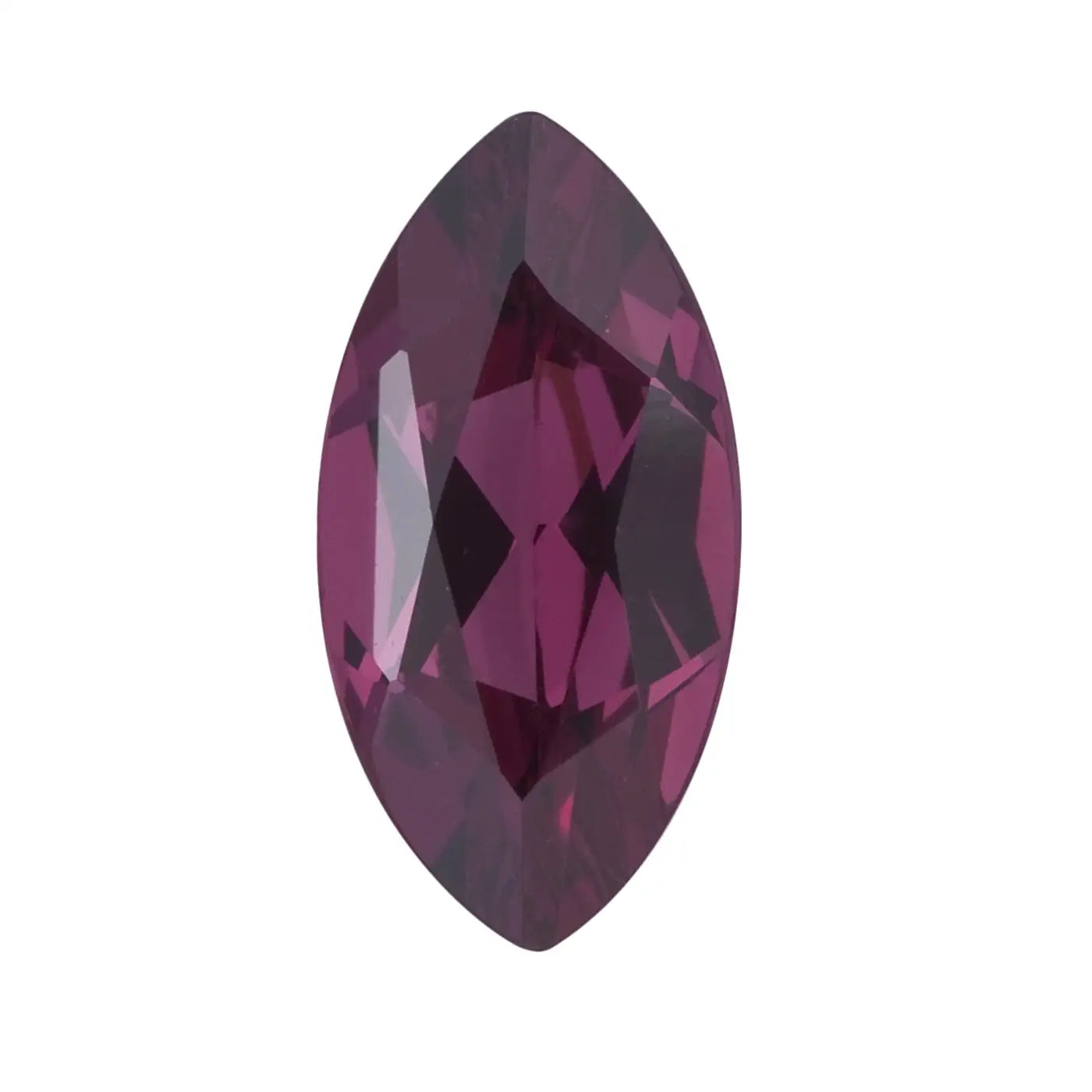
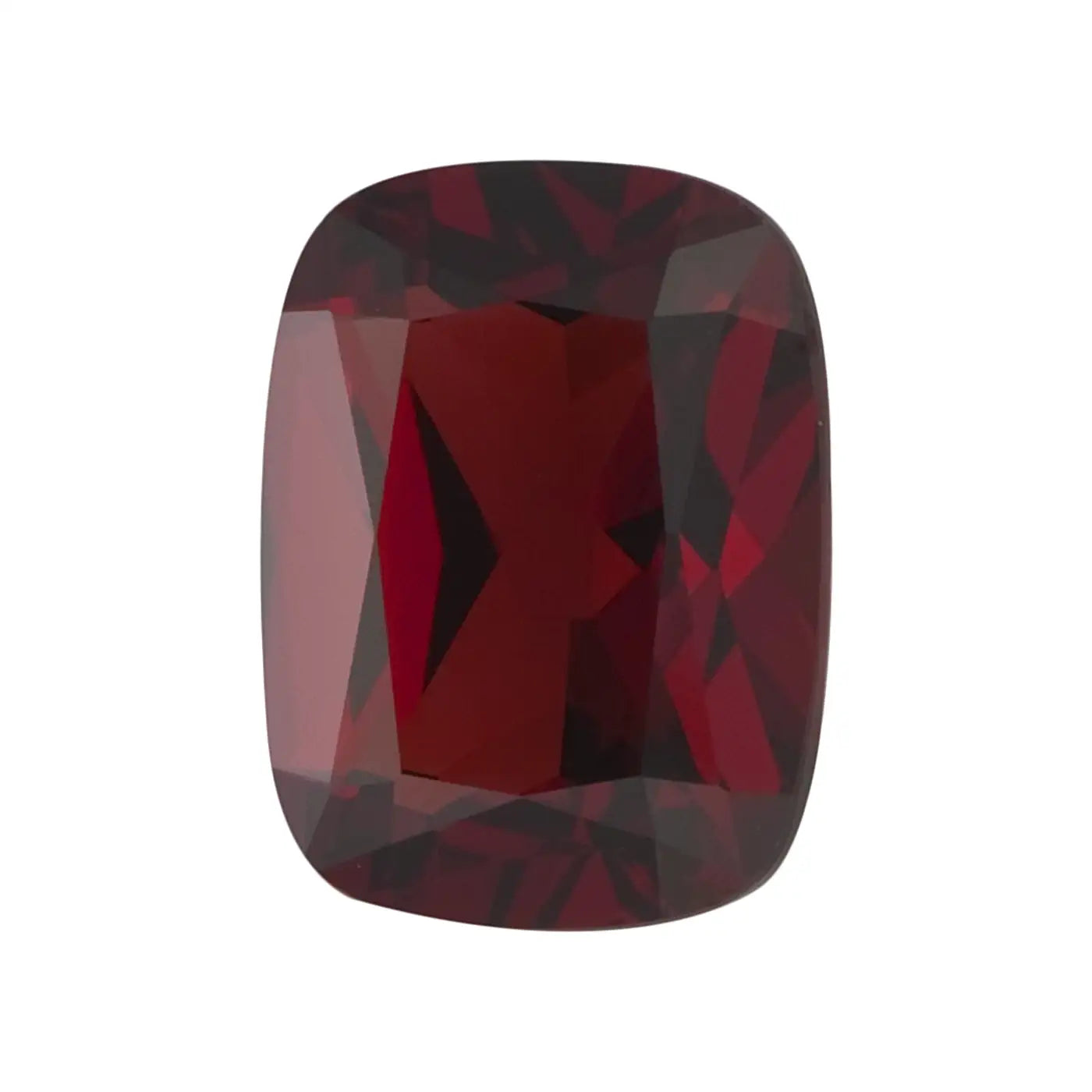

The clarity of Garnets
The clarity of garnets is also dependent on its type. Rhodolite and pyropes are known to be eye-clean, meaning the inclusions can't be seen without magnification.
However, the orange spessartites and hessonites will often contain eye-visible inclusions.
Cut & Shapes
Red garnets can be found in large crystals, allowing for bigger cuts, and a wider array of shapes. Lapidaries will often cut them into the standard round shape, oval shape, cushion cut, but they will also be cut into more unusual shapes such as hearts or triangles.
The rarer green stones are found in smaller crystals, so lapidaries will try their best to keep most of the material from the rough crystal.

Round Shape Garnet

Oval Shape Garnet

Pear Shape Garnet

Marquise Shape Garnet

Cushion Cut Garnet

Princess Shape Garnet
Birthstone & Wedding Anniversary
The garnet is the birthstone of January.
The garnet is used to celebrate the 2nd wedding anniversary in the United States and the 82nd wedding anniversary in France.
Discover our Birthstone Full Guide.
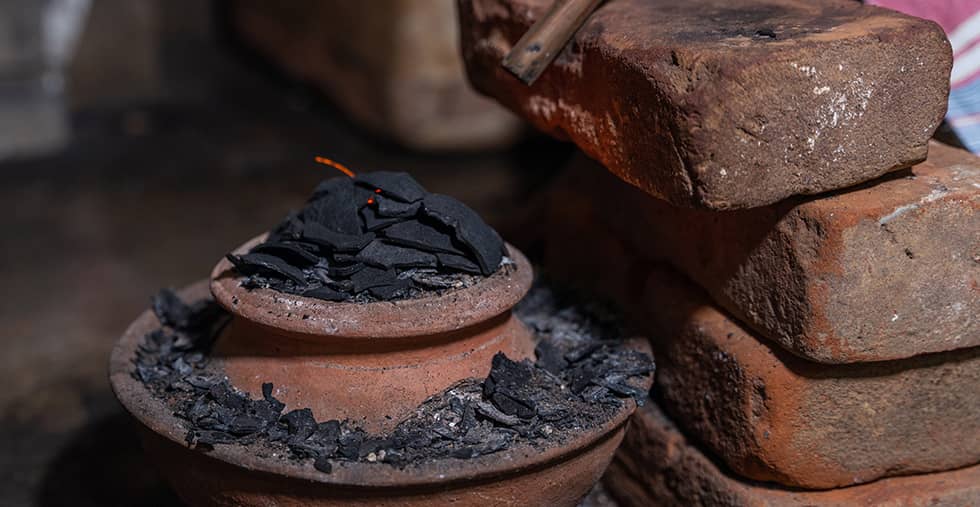
Treatment
The garnet comes naturally in a wide array of colors, and is rarely subjected to color enhancements.
It will in rare cases go through fracture-filling treatments, to remove the cavities.
What Customers Are Saying
Very nice for the price
Total Win! 💎
Very nice choices of jewelry, I even had a hard time checking on every designs because all of it was beautiful. I ended up buying a tennis bracelet as a birthday gift for myself. Gemnat makes me browse on there website for almost 2 hours and it I don't regret buying here. The tennis bracelet was so nice! I kept looking at it when I received it. Thank you, Gemnat. To more purchases soon!!!
Very highly recommended jewelers who provide an excellent service and expert guidance on creating bespoke jewelry as well as a huge selection of other bracelets, necklaces, earrings and rings.
Very happy, would order again!!
Very happy with this ring for my wife. I keep coming back to Gemnat because their quality and prices are hard to beat. They are a lot more cheaper than other online websites I have checked but the quality is just the same or even better. I highly recommend them to everyone who wants a great quality of jewelry. I'm already planning my next purchase with them hihi
User-friendly website and secure checkout.
Top notch. I've ordered from Gemnat twice and the product and the service level is always flawless.
Luxury Service + Quality
This was my first time buying fine jewelry online and I had zero clue what I was doing 😅. I picked out a morganite ring and was worried about how it would look in real life. When it arrived, I was completely blown away!! The stone sparkles more than I expected, the band is perfect, and the packaging is so elegant! The team even helped me with sizing questions via chat. I’m officially hooked on Gemnat!
This ring went beyond my expectations. Stunning and perfectly crafted.
she said YES!
This ring looked even more stunning in person, just like my now-fiancée. She said YES, shed a few happy tears, and hasn’t stopped admiring it since. We couldn’t be happier. Thank you, GEMNAT! The resizing process was also effortless, thanks to the convenient online chat support.
I AM ALWAYS IMPRESSED!!
This is my third purchase from Gemnat and I’m still amazed 😍. Each piece is gorgeous, shipping is fast, and their customer service is super friendly. Definitely my go-to for jewelry now!
Big selection at great prices
This is actually my 2nd time buying a diamond ring online and I wish I knew about this site for my first one too! Tons of options and such good prices. Seriously, how do I give them 6 stars?
This bracelet is so nicely made, the detail is awsome!!
They helped me resize super easy!! fast and nice!!
They could not have been more helpful and professional and we were amazed with the service. Happy to recommend anyone who’s considering diamonds online
They are ABSOLUTELY TRUSTWORTHY!!!
These earrings are so simple but legit sparkle like crazy. Perfect for everyday or when I wanna look fancy. Website was smooth, shipped fast. Obsessed.
There customer service is very very patient when I had a problem with resizing. The ring that I order was a bit smaller but no need to worry since they had it resized for me. Everything was SMOOTH. Will definitely order from this shop again for sure.
The website is so user-friendly. You can easily access everything you want from rings, bracelets, pendants and earrings even wedding rings. They even sort out the colour of stones for buyers. All the designs are super nice it even makes me had a hard time to choose what to buy but I really wanted a tennis bracelet during that time but would probably buy a ring for my girl next time. They are highly recommended!! Customer service was nice because I have to make some adjustments with the chain length and they were patient on every process. Fast replies. Thank you, GEMNAT!!!
The ring is gorgeous, just like in the pictures. Totally in love with it. 😍
The ring is amazing and service is great.
The quality of this ring is incredible, especially for the price. It truly exceeded all my expectations.
Exactly as Expected
The product is Excellent. Exactly what we ordered and expected.
The person I gave these to loved them! They look really nice.
The perfect ring for my bride-to-be—unique, beautiful, and just like her. Gemnat made the whole process really smooth.
The jewelry is beautifully made, with rings available in an impressive range of sizes. Shipping is fast and always tracked for peace of mind. They offer a wide selection of pieces at very competitive prices. I’ll definitely be back for more amazing jewelry.
The craftsmanship on this sapphire ring is outstanding! Feels delicate yet strong.
The craftsmanship is first rate and the service is impeccable. And the best part is the prices. You can get great quality of diamonds in cheaper price than on other websites
Tanzanite just hits different. The diamonds enhance it beautifully. The website photos were accurate. Came well packaged and secure.
Superb Professional Service
Super service, extremely professional, very efficient, extremely responsive, and punctual.
Super pretty, exactly what I wanted. Fits perfectly!
Such a gorgeous ring. The stone isn’t too big or small, just perfect.
Such a brilliant experience here.
Stunning ring! The band is just the right width and goes perfectly with my Morganite solitaire (also from Gemnat). Really appreciated the smooth ordering process and excellent customer service.
So pretty, got compliments instantly
So far this experience has been great! The necklace is shiny and beautiful, and the packaging was lovely. ✨
So cute 😭
Sized perfectly, and all the diamonds are arranged so nicely. The glimmer is amazing. 💎
Simple, transparent, and secure website.
Simple design but diamonds catch the light beautifully. Feels like everyday luxury. Checkout smooth and secure. Delivery on time.
Simple and classy. I wear them with everything.
Amazing
Shipping was smooth, product amazing!!
She liked it!! Mission accomplished
Impeccable Craft
She cried OMG love love love!!
She LOVED the pendant and earrings! Totally worth it
SHE LOVES IT!! From the moment I popped the question, everyone has been complimenting the ring. Her birthstone and the personalized touch just make it perfect.
Ring fits perfectly.
Reliable. Excellent Service!
Really nice accent pieces.
Perfect gift, she loved it 💖


